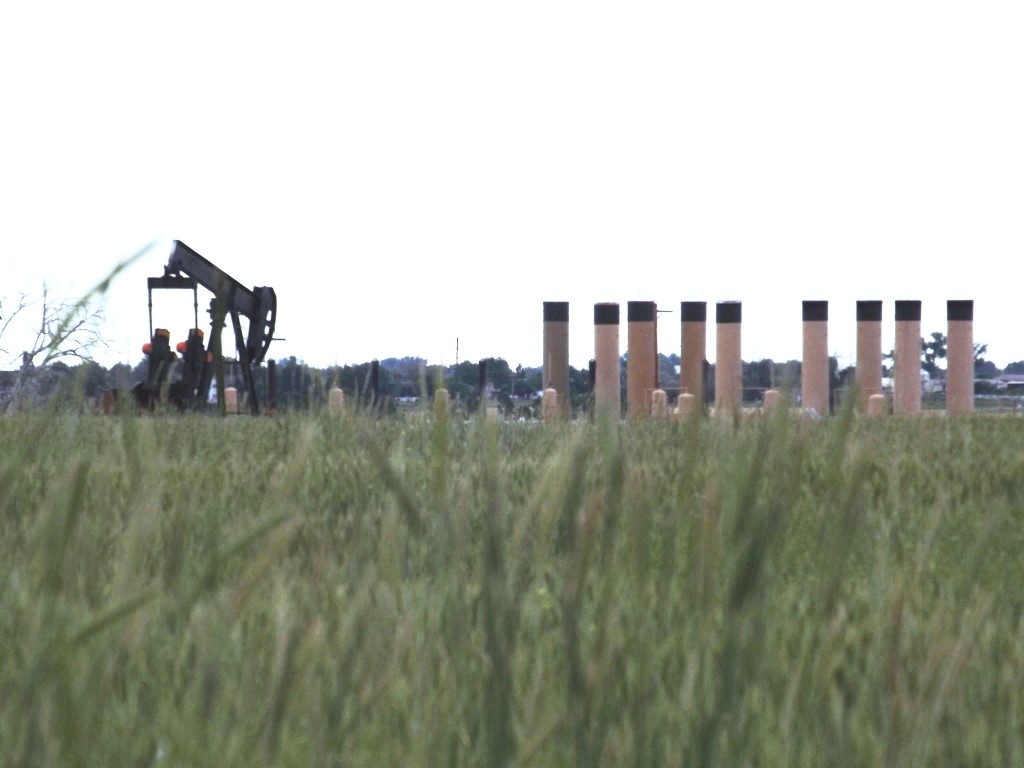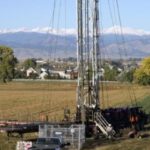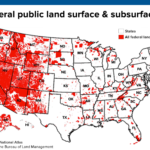A ballot initiative that would create 2,500 foot setbacks is approved for signature collection
Proposed ballot measure 78 was approved for signature gathering by the Colorado Secretary of State’s office Friday. The measure would create a minimum distance of 2,500 feet for all new oil and gas development “from an occupied structure or area of special concern,” according to the ballot measure’s text. For the purposes of the proposed initiative, “re-entry of an oil or gas well previously plugged or abandoned shall be considered a new well.”
The first section of the ballot proposal seeks to establish oil and gas development as a hazardous activity with “detrimental impacts on public health, safety, welfare, and the environment,” and goes on to say “to preserve public health, safety, welfare, and the environment, the people desire to establish a setback.”
Karen Crummy of Protecting Colorado’s Environment, Economy, and Energy Independence, a pro-oil and gas development group, shot back at the proposed ballot, calling it “extreme.” The proposal would eliminate 87% of all new production in Weld Country, according to Crummy.
“This proposed amendment to the state constitution would ban fracing and all responsible oil and natural gas development in the state,” said Crummy. “This extreme measure would allow local governments to take private property without compensation, stripping Coloradans of their property rights and creating a flood of lawsuits that could cost taxpayers billions of dollars.”
Crummy asked that rule changes made by Governor John Hickenlooper’s task force be given time to work before ballot measures are added. Hickenlooper initiated the task force as a compromise to keep similar proposals off the ballot in 2014.
Governor Hickenlooper has also expressed a desire to see the rule changes take effect before changing more laws. He recently stood against members of his own party on a bill that sought to reaffirm local authority regarding noise traffic and visual impairment surround wells.
Colorado has made the claim it has some of the most stringent oversight, permitting and ongoing enforcement of regulations on oil and gas operations of any state, and the regulation of oil and gas since the first wells were drilled 80 years ago were the jurisdiction of the Colorado Oil and Gas Conservation Commission. Stiff fines are collected from any operations that don’t follow the laws, some as high $15,000 per day or more.
Ensuring the rights of landowners to access, produce and sell their minerals has been a priority which the COGCC has taken seriously, along with ensuring that operators conduct safe operations.
An amendment to the state’s constitution that raises the setback from 500 feet to 2,500 feet would essentially shut down oil and gas operations in places where minerals are adjacent to and beneath populated areas such as cities within the Wattenberg field in the Denver Julesburg basin in northern Colorado’s Weld County. This strategy would block access to minerals. The strategy is in line with the global environmental movement’s ‘keep it in the ground’ approach to stopping all development of fossil fuels.
Many companies operating in Colorado’s Wattenberg field—companies like Synergy Resources (ticker: SYRG; SYRGInfo.com , Anadarko Petroleum (ticker: APC; Anadarko.com) and Noble Energy (ticker: NBL; NobleEnergy.com—have made it their business to work hand in hand with municipalities, residents and other industries such as homebuilders, to ensure that the safe development of the oil and gas assets in the area meshes with the needs and goals of those who live in the communities.
In February, Oil & Gas 360® interviewed Lynn Peterson, CEO of Synergy Resources, and in the interview he discussed this situation at length. This portion of the interview is reposted below:
Weld County and Colorado Geopolitics
Oil & Gas 360®: There are some proposed ballot initiatives for 2016 that would hand over permitting decisions to local governments, impose setbacks of 2,500 feet to 4,000 feet. Last month the city of Greeley denied a permit to Extraction Resources. What’s going on up there?
Lynn Peterson: Again, this is what has built this company. A lot of us are Colorado natives. The people we’ve hired, a lot of them are Colorado natives. Being able to work with municipalities, being able to work with residents—we take a lot of pride in that. When you talk about setbacks, a lot of that we’re already doing. If we have a location that is close to a school or some type of facility like that, we’re glad to move around; we’re more than willing to do that. You can’t really have a 2,500 foot setback. It would shut down the whole industry.
When you look at the tax dollars that are going out to these districts, the counties, the schools, the oil and gas industry is an invaluable part of Colorado’s economy. I think it’s a shame being a native here, how this state’s changed. We’re trying to train our staff that when people go to a soccer game, a church function or whatever it might be, they can talk to the constituents about what we’re doing, how we’re doing it, how we’re siting [wells]. That’s a big push that we’re trying to do internally here.
So while we certainly are aware of it and concerned with it, we don’t believe that we will be hindered by it. The addition of the Brian Macke. And of course Craig Rasmusen [Synergy’s chief operating officer]. They are a big part of the team here and will be a big part going forward.
We are more than happy to roll up to someone’s breakfast table, have a cup of coffee and talk about what we are doing. This is what we do.
We’ve got two operating pads within a couple miles of the Extraction Resources location.
If you have a house in there you don’t want an oil tank truck running back and forth on a daily basis because you’ve got kids and everything—we get that. We’ve got a multi-well pad sited just east of that location and it’s already approved. We’re trying to time it so we get pipelines into the area. We understand there’s a cost of doing that, but we’ve got to be a good neighbor.
You can’t go in and tell residents you can’t do these things because it costs you money. You don’t tell the residents, ‘sorry, but you have to deal with it’. That doesn’t fly. Again, it goes back to being real people. We live in these communities. A lot of our staff lives up in the Greeley/Windsor area. We love to hire people up there because we want our people to be a part of the community. We’ve got to be good stewards of what we are doing.
Everything we’ve talked about comes back to this: do what you would like to have done in front of your own house.
It goes back to Synergy’s founding. Ed Holloway lives in the area [in Weld County] and he’s a very conscientious person. Craig Rasmusen, our COO, used to be the head basketball coach at UNC in Greeley. I went to school at UNC. We’ve got a lot of UNC grads. We know people in these communities; the leaders of these areas are our friends. We want to continue that. I’m proud to say I’m a native of Colorado. I love this state. Dan Kelly is the same—he spoke highly about that when he joined our board.
Oil & Gas 360®: Thinking about the effects that extended setbacks would have on the industry, do you think the chances of ballot initiatives getting on the ballot and passing in 2016 are likely to be slim?
Lynn Peterson: You hope so. You don’t know until the election, but I think our industry’s gotten a lot better at trying to educate voters, and get the positives out there.
When we look at extended length and mid-length laterals for example, we’re trying to do some things from our standpoint to lessen the footprint. We don’t have as many locations. You have to find a balance, and I think we’ve been pretty sensitive to that.







